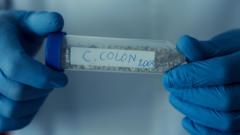In an enlightening genetic study, scientists have unveiled a comprehensive record of 214 diseases that have plagued humans over a span of 37,000 years across Europe and Asia. As the world grapples with recent outbreaks, such as COVID-19, researchers are turning to ancient history to glean vital insights that could inform future public health strategies.
The study, released recently, highlights the necessity of understanding ancient pathogens as new diseases emerge globally. While historical accounts like Thucydides' description of the plague in Athens point to severe illness, the specific pathogens responsible remain largely unknown. Recent advances in genetic analysis, particularly focusing on DNA extracted from human remains, have opened new avenues for exploration.
For this latest research, scientists meticulously examined the remains of 1,313 people, offering a broad perspective that extends beyond the mere identification of the earliest instances of various diseases. This extensive sampling allowed them to map the fluctuations in disease prevalence over thousands of years.
Among the oldest remains analyzed were those belonging to ancient hunter-gatherers, whose skeletal and dental remains revealed an array of pathogens, including hepatitis B, herpes virus, and Helicobacter pylori, a bacterium often linked to stomach ulcers and cancers.
This pioneering work not only accentuates the long-standing relationship between humans and diseases but also offers a historical context that is crucial for understanding the current and future challenges posed by pandemics.

















